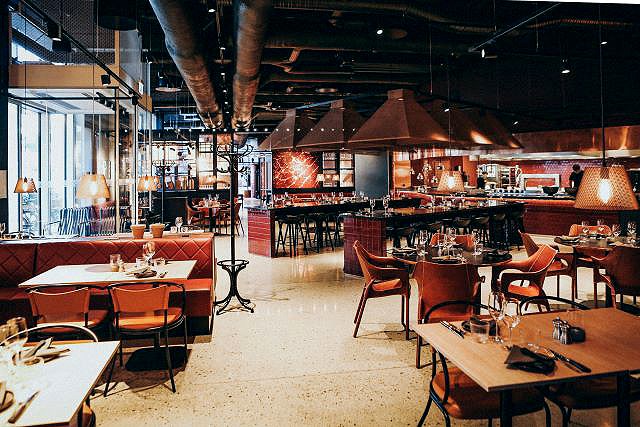Patrons at restaurants can expect to see their bill increase as prolonged complexities from the pandemic weigh in on fewer customers in seats, and cost pressures from external factors continue to cut profit margins.
Ontario premier Doug Ford's recent announcement that minimum wage workers will see a jump in their wages effective Jan. 1 from the current $14.35 per hour to $15 per hour will include servers, effectively eliminating the server wage.
While the serving wage has lagged behind minimum wage, the tips servers receive from patrons have been viewed as a way to subsidize their wages.
With the server wage on par now, the practice of tipping comes into question and whether patrons should continue to tip as the gap has closed, and the subsidy needed from patrons has diminished.
Michael von Massow, a University of Guelph professor in the Department of Food Agriculture and Resource Economics in the Ontario Agricultural College said that tipping has created problems within the restaurant industry and it is time to do away with the practice altogether.
“There are a bunch of issues with tipping, but it is in fact right now a way of subsidizing those workers’ wages, but it comes at a significant cost,” said von Massow.
Von Massow said that the notion of doing away with tipping comes with its own set of negative variables, such as the real possibility that workers will opt away from working at tipless establishments as the workers can make upwards of $30 an hour with tips, and as the tips are not counted as a pay cheque, and therefore workers don't pay EI, CPP or receive vacation pay from the tips.
“It’s true that the increase in minimum wage for servers will put more pressure on restaurants because they pay generally those servers at minimum wage because they get tips, and tips contribute significantly to the income those servers make,” said von Massow.
Instead, von Massow said a beneficial solution would be to end the practices of tipping and have restaurants opt-in for the more sustainable option of increasing prices to ensure front-of-house staff are paid a livable wage.
“So, what we should do, is say what are fair wages for these employees and pay them and reflect that in the cost of going out,” said von Massow “Increasing costs may well discourage people from going out, there is pain in the transition, but frankly it might make some sense to make that transition.”
Von Massow co-authored a study with Bruce McAdams, an assistant professor in the School of Hospitality, Food and Tourism Management at the U of G in 2016 which found inequity and unfairness, loss of control of service quality, and difficulties in succession planning and promotion were identified.
The study used interviews and a survey to explore the perspectives of both restaurant managers and servers in identifying operational issues arising from tipping.
“The patron is exactly subsidizing the workers' wages, if you look at the history of the tipping model it was supposed to be a way we get good service. The theory is the sever is motivated to give good service because there is a prospect of a tip at the end," said von Massow.
He said that research instead shows there is very little correlation between the size of the tip and the quality of service.
Food economists are predicting prices will continue to rise, which will mean restaurant prices will increase to keep pace.
“Those who spend less of their income on food tend to make other adjustments, research has shown. They may go to restaurants less or they cut back on other kinds of spending. There’s also solid evidence in the research that people ‘trade down’ on foods as well. So for example, they’ll have more ground beef and less steak,” von Massow said in a U of G release on Monday.
“To me, there is really cost pressure across the board, which is invariably going to lead to charging more for the things we are eating in restaurants, said von Massow. “My expectation, frankly, is restaurant prices will have to go up more than retail food prices as there is pressure in more places.”
